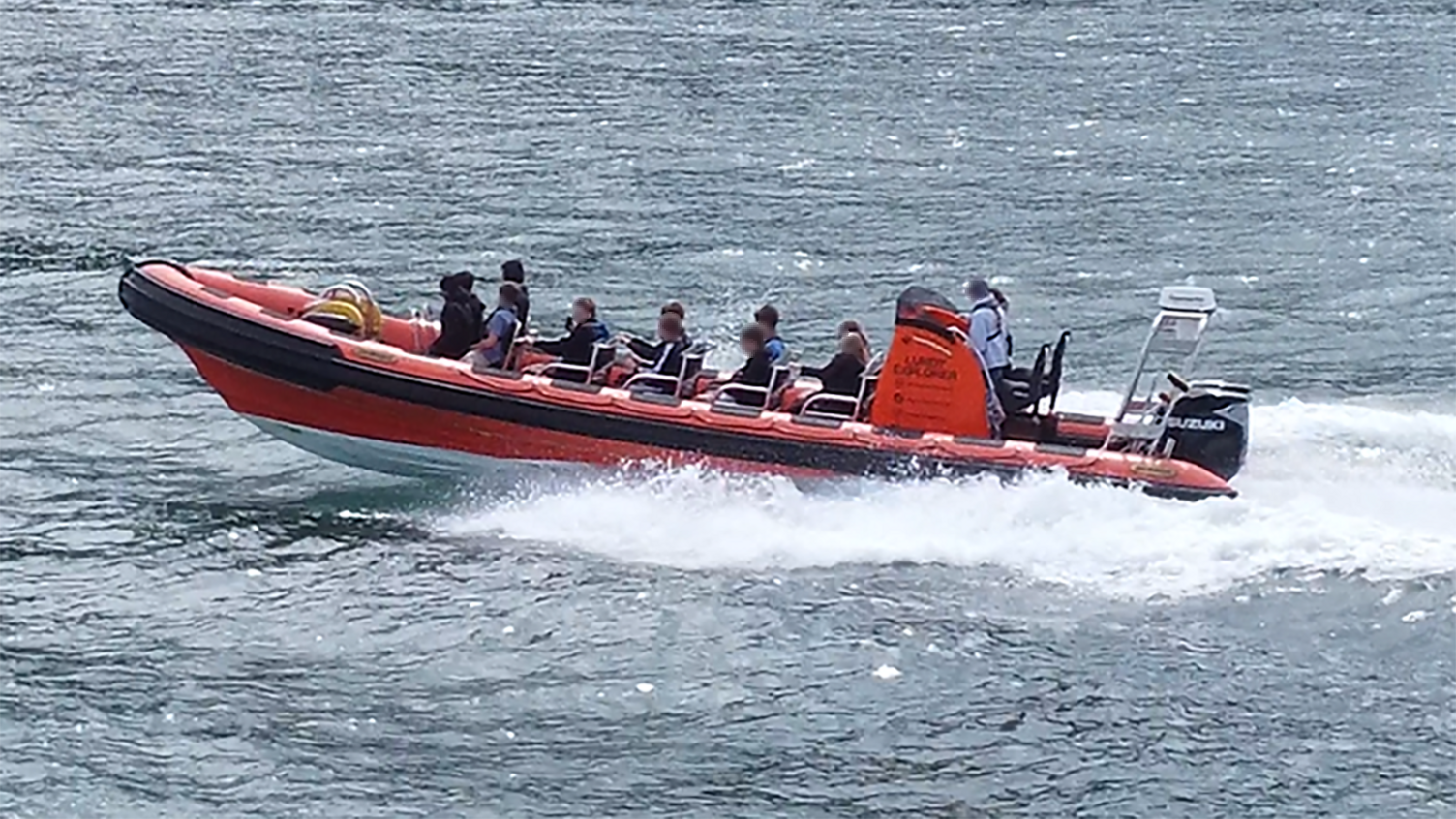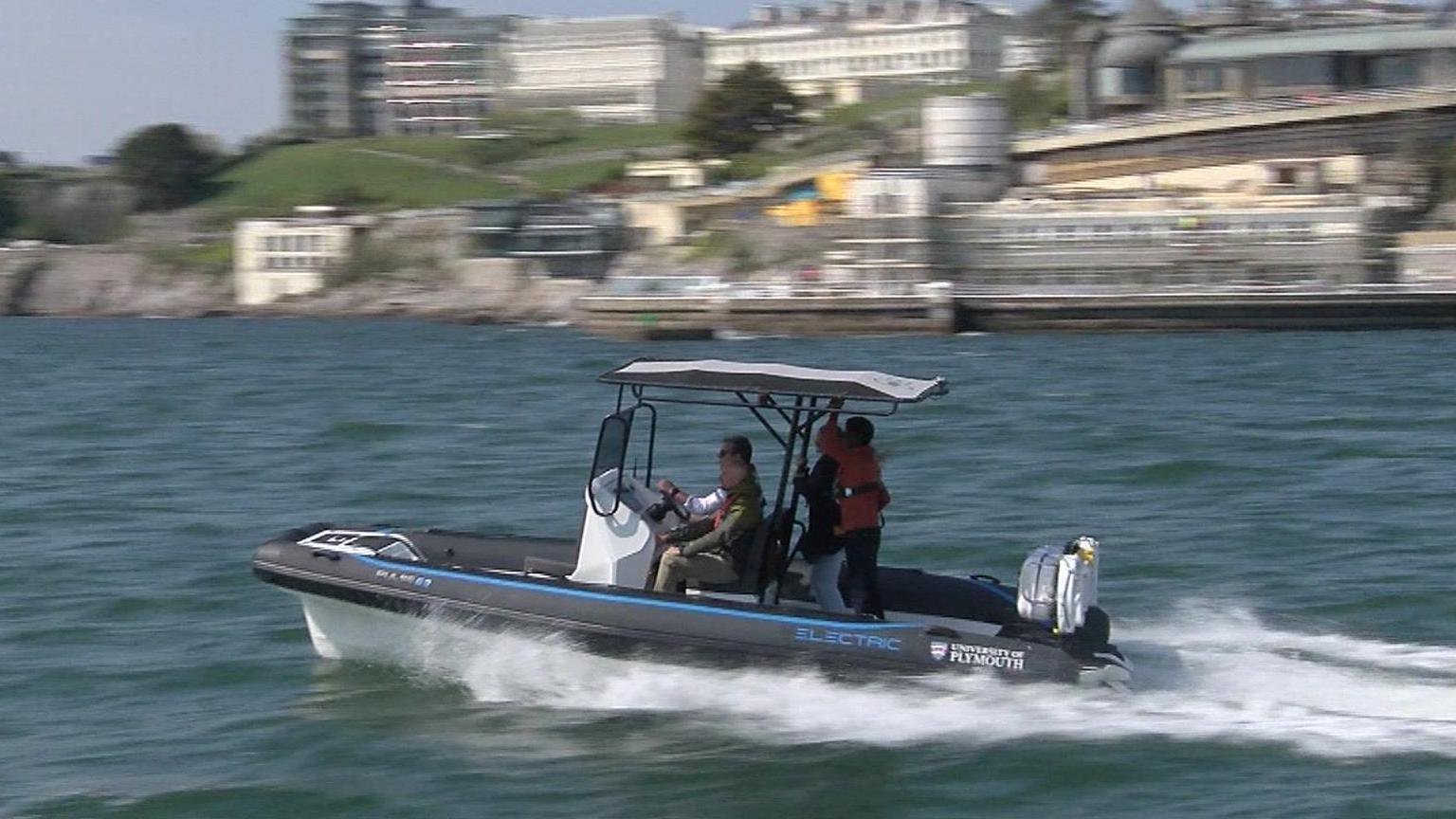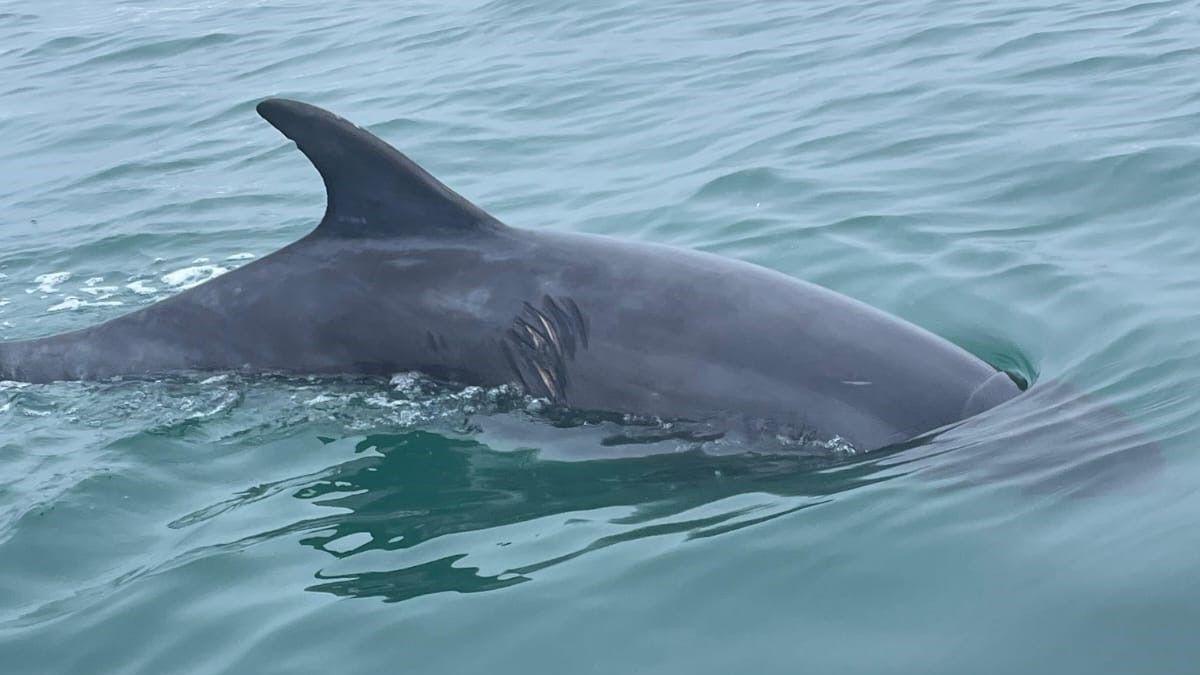'Inappropriate seating' on boat led to paralysis

The MAIB found safety on commercial RIBs to be "a persistent issue"
- Published
An accident on a sea safari boat trip that left a woman paralysed was caused by the use of "inappropriate" seating, marine investigators have said.
The passenger was thrown from a seat at the front of the rigid inflatable boat (RIB) Lundy Explorer when the boat hit a high wave as it was leaving Ilfracombe harbour in Devon on 7 June 2023.
The Marine Accident Investigation Branch (MAIB) concluded jockey seats were not safe for use in the front third of RIBs, which experience higher shock loads than the rest of the boat.
Sea Safari Ilfracombe Ltd said the firm had been under new management for two years and had implemented all safety guidance in the report. This included installing shock sensors.
A spokesperson for the company added: "We operate to the highest standards and go above and beyond to ensure all our passengers and crew are safe."
The accident investigators also concluded the local weather conditions had deteriorated quickly, which had resulted in increased wave heights that the RIB's skipper had not expected.
'A persistent issue'
The investigators also found the pre-departure safety briefing had not included adequate instruction on the use of the seats, which had left the passengers unaware of the risks.
MAIB chief inspector of marine accidents Andrew Moll said the passenger had been injured in a "dreadful accident" in which "inappropriate seating arrangements" had been used.
He said: "Despite being in good health and wearing appropriate safety equipment, she was dislodged from her seat and sustained a spinal injury that has resulted in permanent paralysis."
Mr Moll said the accident had not been an isolated incident: "Our previous investigations have shown a pattern of similar injuries occurring, which suggests that safety on commercial RIB operations is a persistent issue that the industry can do more to address."
The MAIB said current regulations did not reference safety standards for the design, position and use of seats on high-speed RIBs.
The accident investigator advised the Maritime and Coastguard Agency (MCA) to extend its anthropometric assessment, which assesses the size, weight and proportion of a body, so that it includes vertical impacts from high-speed commercial vessels in varied sea conditions and speeds.
It also recommended that the MCA introduced a requirement to assess and mitigate the risk of passengers who sit in the front third of commercial RIBs and speedboats in its code of practice.
The MAIB recommended Ilfracombe Sea Safari Limited install sensors going forward, which measure vibrations and shock in real-time so crew can adjust their actions accordingly.
It also said it should implement safety management that included what to do when conditions changed, pre-departure safety briefs, risk assessments and use of jockey seats.
Mr Moll concluded: "I urge all operators to take action. Review seating arrangements, give thorough safety briefings before every voyage and conduct risk assessments."
Follow BBC Devon on X, external, Facebook, external and Instagram, external. Send your story ideas to spotlight@bbc.co.uk, external.
Related topics
- Published26 April

- Published9 August
